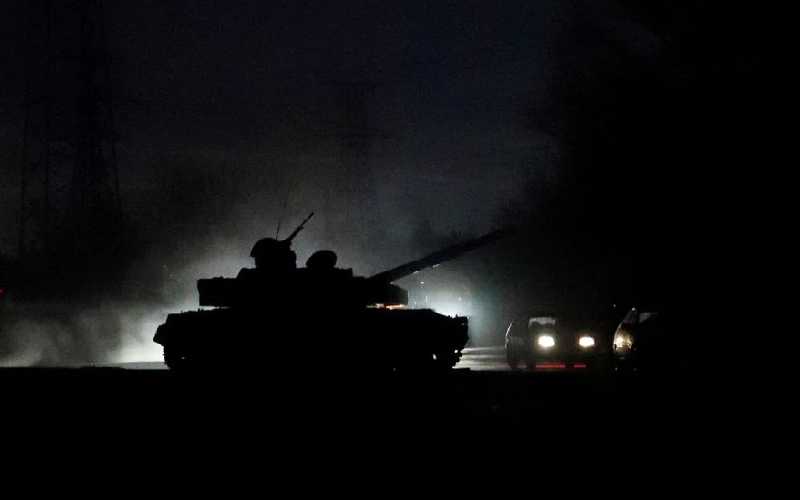×
The Standard e-Paper
Join Thousands Daily

A tank drives along a street after Russian President Vladimir Putin ordered the deployment of Russian troops to two breakaway regions in eastern Ukraine following the recognition of their independence. [Reuters]
The United States and its European allies are set to announce fresh sanctions against Russia on Tuesday after President Vladimir Putin recognised two breakaway regions in eastern Ukraine, deepening Western fears of a new war in Europe.